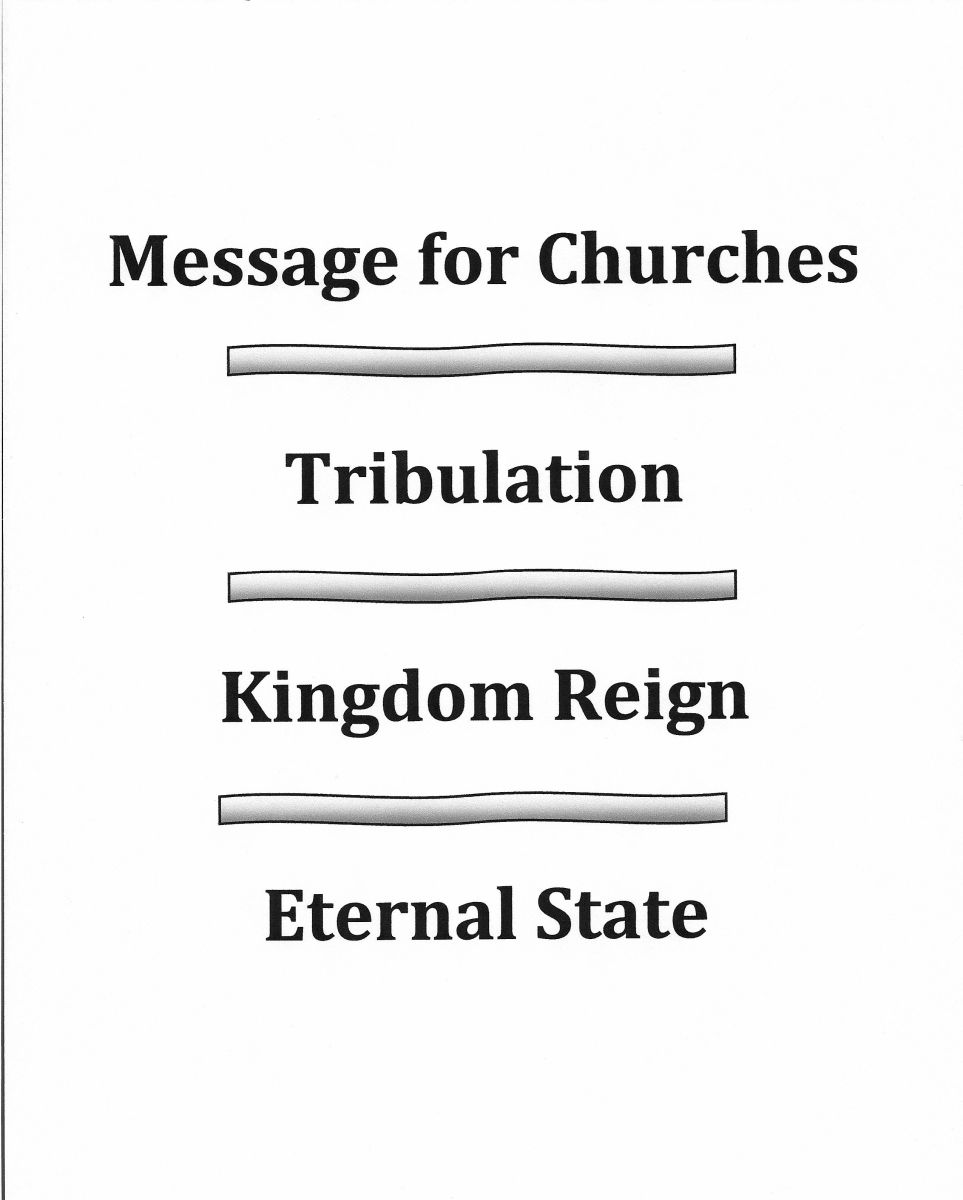Bible: What Does 1 John 4-5 Teach Us About "the Spirit of Truth and the Spirit of Error," God's Love, and Eternal Life?
The Apostle John

The Spirit of Truth and the Spirit of Error
Having mentioned the Holy Spirit, John proceeds to compare other spirits to Him—specifically, spirits who speak through false prophets—, warning believers to examine every spirit to see if it is from God before believing it (v. 1).
The one who speaks by the Holy Spirit confesses the deity of Christ (v. 2); the one who denies Jesus’ deity is the spirit of the Antichrist—a demonically-energized phenomenon already present in the first century world (v. 3).
John encourages his “little children” that because they belong to God—the Holy Spirit who indwells them and is infinitely superior to Satan, the spirit resident in this world system—they have won the victory over false spirits/prophets (v. 4).
False prophets belong to the world system, and its people listen to them (v. 5).
While true believers have their origin in God, know God, and heed the voice of the Lord’s true prophets and apostles (v. 6a), unbelievers do not listen to what John and his associates tell them (v. 6b).
The apostle asserts that by applying this test, believers can distinguish between “the spirit of truth and the spirit of error” (v. 6c).
The Cross: God's Wrath Satisfied and God's Love Demonstrated

Addressing them once more as “beloved,” John exhorts them to love one another.
Those who truly love others unconditionally have experienced God’s love in the new birth and have come to know Him personally (v. 7).
Those incapable of demonstrating love have not come to know Him; God, whose essence is unconditional love, causes His love to flow through only those who know Him (v. 8).
God demonstrated His love by sending His Son to the Earth, so that believers might receive His eternal quality of life and conduct their lives with His strength (v. 9).
By satisfying His wrath upon the sacrificial Lamb (“the propitiation for our sins”; cf. 1 John 2:2; Rom. 3:25), God the Father revealed what pure love is; the believers’ love for God does not originate within their own hearts, but with the Lord (v. 10).
In light of this truth, they should seek to imitate the kind of love that God showed (v. 11).
Although no flesh and blood human being has ever seen God in His essence, believers can experience God’s presence and become mature (“has been perfected”) in His love as they love one another (v. 12; cf. John 1:18).
The Holy Spirit makes known His presence and love to their spirit, so that they know that a spiritual union exists between them and the Lord (v. 13; cf. Rom. 8:16).
John bears witness to the truth that God sent Jesus to save His elect, and that a spiritual union exists within those who believe in Christ’s deity (v. 15; cf. Rom. 8:16).
The Water and the Blood


I John 5
Employing another open-ended “Whoever” clause (cf. 1:5; 2:23; 3:4, 6(2), 9, 10, 15, 17; 4:15), the apostle states two conclusions:
(1) the one who believes that Jesus is Messiah has experienced a spiritual birth by the Father; and
(2) the one who loves the Father also loves fellow believers (v. 1; cf. John 1:12, 13).
By loving the Father and obeying His commandments, believers persuade themselves that they love the brethren (v. 2).
Keeping God’s commandments does not overtax believers, and the obedience demonstrates their love for the Lord (v. 3).
The faith of the regenerate achieves victory over the world system (v. 4).
John brings his argument fully around, asserting that the victor believes in the eternal Sonship of Jesus (v. 5; cf. 5:1).
The apostle states that Jesus Christ made His mark on the earthly scene “by water and blood,” and then he emphasizes he must mention the blood with the water (v. 6a).
[Ryrie suggests that these elements signal both the beginning (His immersion by water) and the ending (His bloody crucifixion) of His earthly ministry (New Testament Study Bible, 446).]
The Spirit of God testifies to these truthful facts (v. 6b, NKJV; v. 7, NASB).
[The NKJV contains a disputed verse seven; it appears to be an early theological formulation of the Trinity, originating in a few later MSS.]
John avers that the testimony of the Spirit, the water, and the blood all agree on the facts (v. 8).
God’s testimony about His Son excels that of mere man (v. 9).
The one who believes God when He testifies that Jesus is His Son possesses this witness within; the one who disbelieves God’s testimony makes Him a liar (v. 10).
Eternal Life
view quiz statisticsNext, John relates the content of God’s witness:
(1) He has given His quality of life to believers; and
(2) this life resides in Christ (v. 11).
Those who have the Son dwelling within them possess God’s quality of life (“eternal life”); those who do not possess the Son within do not have this life (v. 12).
The apostle states his purpose for writing his epistle to believers in Christ: that they might have full assurance of their salvation (v. 13).
[The NKJV includes a concluding clause that points to the believers’ perseverance in that belief.]
John indicates that believers can have certain convictions regarding their prayer life:
(1) they can know that God will hear all their requests that they ask in harmony with His will for them, and
(2) they can also know that God will grant their requests when they truly know—not just intellectual belief—that He hears them (vv. 14-15).
As an example of a request that God would answer, John suggests a prayer that they might ask on behalf of a believer “sinning a sin” not leading to death (v. 16a).
The apostle seems to say that they should not pray for believers who sin so much that God must take their lives to maintain the Church’s witness to the world (v. 16b; cf. 1 Cor. 11:30).
[Ryrie points out that the Greek reads “sin,” not “a sin” (447).]
Every unrighteous deed constitutes sin against God, but none necessarily leads to God’s chastening the sinner to the point of physical death (v. 17).
The apostle reiterates his argument that regeneration prevents believers from sinning habitually; Jesus (“He who was born of God”) guards them and does not permit Satan to touch them (v. 18).
True believers know that they belong to the Lord, and that Satan controls the whole world system (v. 19).
They also know that the Messiah has appeared to believers, and that He has purposely given them spiritual understanding.
That understanding consists in knowledge of the true God as well as in the certainty that they dwell in the environment of Christ’s eternal quality of life (v. 20a).
John asserts that Jesus Christ is “the true God and eternal life” (v. 20b; cf. John 14:6; 17:2-3).
In his final word, the apostle addresses his “little children,” and exhorts them to keep away from anything that would substitute itself for God (“idols”) [v. 21].
Prerequisite for Loving Christ
view quiz statisticsChrist Loved Us Before We Loved Him
True believers know experientially that God loves them; those who live their life out of this love—“God is love”—are drawing their life from the indwelling Spirit (v. 16).
The apostle indicates that believers who loved in the same mature way that Jesus loved will confidently stand at His bemata (v. 17); they will experience no fear, because their mature love rejects any sense of apprehension before God.
However, those who fear do not have a mature love (v. 18).
John points out that Jesus’ love for His brethren precedes their love for Him; in other words, believers must first experience Christ’s love before they can love Him and His brethren (v. 19).
He states that those who profess to love God but show contempt for believers engage in lying.
John reasons that it is impossible to love an invisible God if one hates a visible believer (v. 20).
Believers must obey the word that commands them to love both believers and God (v. 21).
A Mini-Study of the Truth That the Believer Knows
The Knowledge of the Christian
1 John 2:3—Proof that we know God: keeping His commandments (2:3-6; 5:1-3)
2:5—Proof that we are in Him: we exhibit the same lifestyle as the Lord.
2:13, 14—Him who has been from the beginning (the Father)
2:18—Proof that it is the last hour: many antichrists have arisen (2:18-23; 4:1-6)
2:20, 21—The anointing gives knowledge of truth and ability to discern truth from error.
2:29—Born-again people practice righteousness (2:29-3:3).
3:2—We shall be like him; we shall see Him as He is.
3:5—Jesus appeared in order to take away sins; Jesus is sinless (3:4-6).
3:14—Love of brethren: proof that we have passed out of death into life.
3:16—We know love by His sacrificial death for us.
4:2—People who confess Jesus as the God-man are speaking by the Holy Spirit.
4:6-8—People who listen to the gospel message and receive it (and us) are from God.
Those who do not are not from God, but are in error.
Those who love are born of God.
4:13, 16—Holy Spirit’s inner testimony: proof that we abide in Him.
We have come to know God’s love for us.
5:2—We love the children of God when we love God and obey Him.
5:13—We have eternal life because we believe in the name of the Son of God.
5: 15, 18-20—Assurance that God hears our prayers asked according to His will is proof that He will answer them.
No true Christian habitually sins.
We are God’s; we know the Son has come and has given us understanding.
Study Questions for 1 John
- What other NT books did the apostle John write?
- What evidence does John provide to prove the Incarnation of the Word?
- Why does John speak and write to his readers about Jesus?
- What does John mean by “God is light and in Him is no darkness at all” (v. 5)?
- How do the obedient differ from the disobedient?
- What is God’s promise to those who “agree” with Him regarding their sin?
- Who is the believer’s advocate?
- Interact with the following statement: Christ’s death is sufficient to pay the penalty for all people, but it is efficient only for believers.
- What is a sure-fire way of knowing that an individual knows Christ personally?
- Which “old message” does John exhort his brethren to obey?
- What three groups does the apostle address?
- Why has John written each group?
- Discuss as many characteristics of “the world” as you can.
- To which particular antichrists does John refer in chapter two?
- What is the “anointing” of the Holy Spirit?
- What must believers do to find rest, bear fruit, and stand firm?
- What will characterize the children of God at the Rapture?
- What does John mean when he writes that those who abide in Christ do not sin?
- What simple test may one perform to distinguish the believer from the unregenerate
- What indicates that an individual possesses new spiritual life from God?
- What is tangible evidence that one loves the brethren?
- What is the “spirit of the antichrist”?
- What gives believers the victory over false spirits/prophets?
- What two conclusions does the apostle draw at the beginning of chapter five?
- What achieves victory over the world system?
- What does John mean by the phrase “by water and blood”?
- What verses argue for the security of the believer in chapter five?
- What convictions can believers have regarding their prayer life?
- What is the content of the spiritual understanding that the Messiah has given to believers?
- What is John’s final exhortation in this epistle?
© 2014 glynch1








